Within the framework of the second APEC Senior Officials Meeting (SOM 2) and related meetings, the Vietnam National Committee for Pacific Economic Cooperation (VNCPEC) and the PECC International Secretariat organised the 24th General Meeting themed “Vision for an Asia-Pacific Partnership for the 21st Century”. Deputy Prime Minister/Foreign Minister Pham Binh Minh, Chairman of the APEC National Committee 2017, attended and delivered an important speech at the event.
The meeting provided a chance for leading researchers and experts, business representatives and leaders in the region and other countries to discuss issues which have a long-term effect on the future of the Asia-Pacific region, including growth, trade connectivity and challenge resettlement in the region. It is the first time Vietnam hosted the important meeting.
The meeting attracted the participation of nearly 200 delegates, representing 26 member committees of PECC, senior officials of APEC and leaders from ministries, branches, sectors and research institutes of Vietnam and other regional and international organisations.
Addressing the opening ceremony of the meeting, Deputy Prime Minister/Foreign Minister Pham Binh Minh congratulated the Pacific Economic Cooperation Council (PECC) and all members on their outstanding work for the region’s cooperation and prosperity over nearly four decades. The leader emphasised that the Council has asserted itself as a unique institution in getting input from business, government and academic circles to formulate ideas on the most significant challenges facing the Asia - Pacific.
Former director of the World Trade Organisation Pascal Lamy analysed emerging trends in global trade which he said require governments to cooperate closer to harmonise policies, regulations and help people better understand open trade and related social security policies.
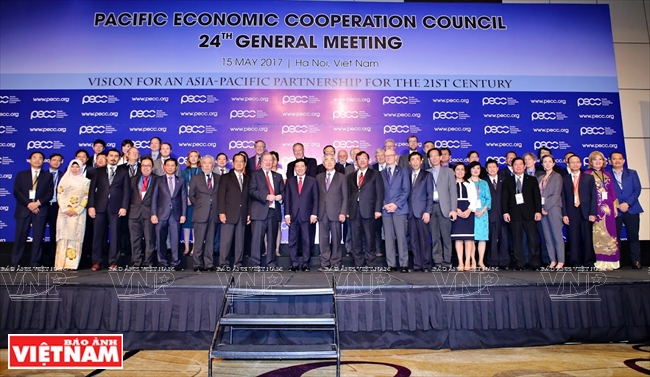 Deputy Prime Minister/Foreign Minister Pham Binh Minh and international delegates.
Deputy Prime Minister/Foreign Minister Pham Binh Minh and international delegates.
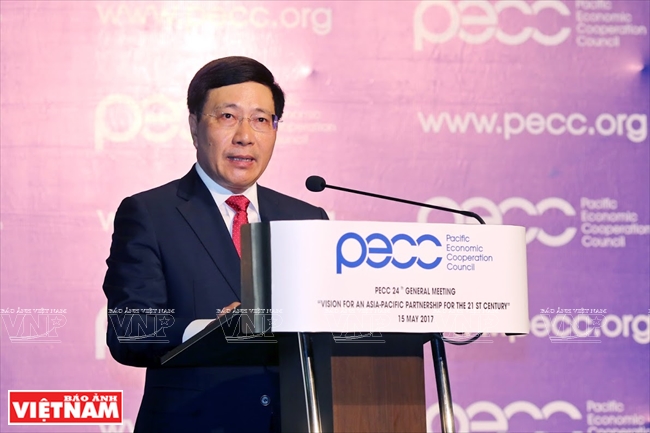 Deputy Prime Minister/Foreign Minister Pham Binh Minh.
Deputy Prime Minister/Foreign Minister Pham Binh Minh.
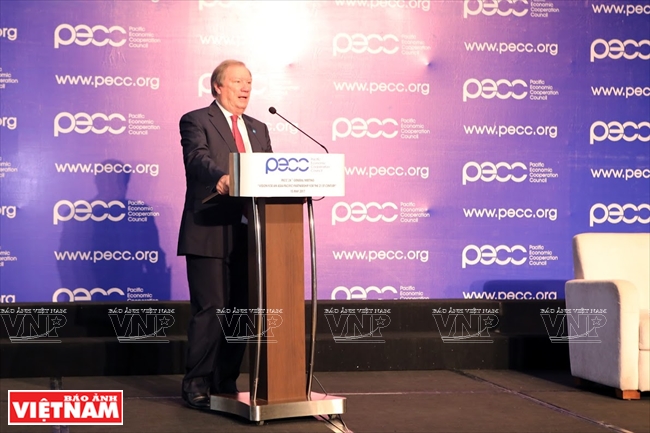 Don Campbell, co-chair of the Pacific Economic Co-operation Council (PECC).
Don Campbell, co-chair of the Pacific Economic Co-operation Council (PECC).
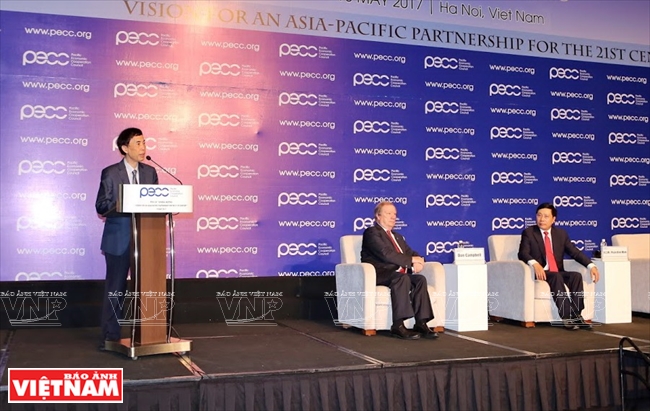 Vo Tri Thanh , new Chair for the Vietnamese committee for PECC, is currently the senior expert of the Central Institute for Economic of Vietnam.
Vo Tri Thanh , new Chair for the Vietnamese committee for PECC, is currently the senior expert of the Central Institute for Economic of Vietnam.
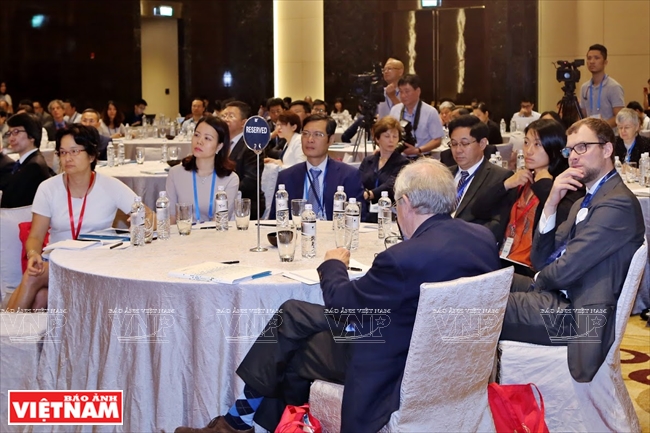 The meeting attracted the participation of nearly 200 delegates, representing 26 member committees of PECC.
The meeting attracted the participation of nearly 200 delegates, representing 26 member committees of PECC.
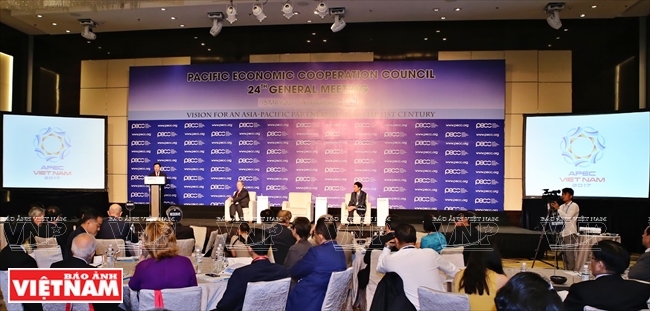
A panoramic view of PECC 24 in Hanoi.
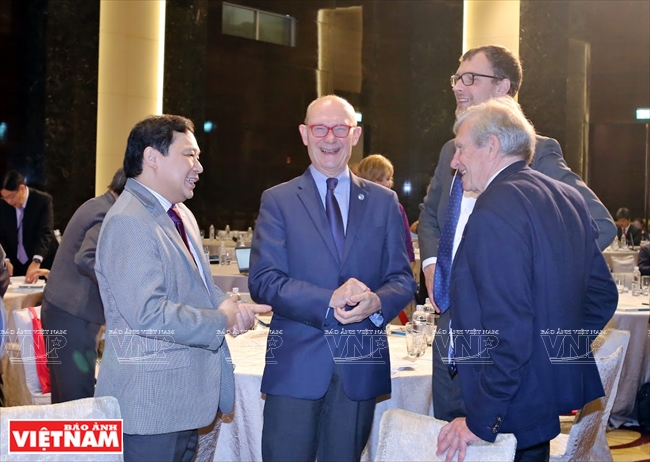 Former director of the World Trade Organisation Pascal Lamy (centre) with participating delegates.
Former director of the World Trade Organisation Pascal Lamy (centre) with participating delegates.
At the meeting, participants said that the economy in general and trade and investment structure, in particular, would continue to strongly change in the region and the world. They highlighted a demand for forming more partnerships and seeking driving forces for the liberation of trade, regional connectivity, and sustainable and innovative growth. They also spoke about the value of the role of micro-, small- and medium-sized enterprises, and services and investments in the regional economy.
They praised APEC collaboration with regional and international organisations and asked for a regional cooperation mechanism to push ties toward inclusive and sustainable development and build a vision for the Asia-Pacific partnership.
Established in 1980, the Council brings together leading thinkers, and decision makers from government and business in an informal setting to discuss and formulate ideas on the most significant challenges facing the Asia Pacific.
It regularly develops and advocates regional policy initiatives to aid in the stable economic development of the region.
It is one of three official observers of APEC with its international secretariat in Singapore and a network of 23 official member committees, mostly from APEC economies.
|
By Tran Cong Dat